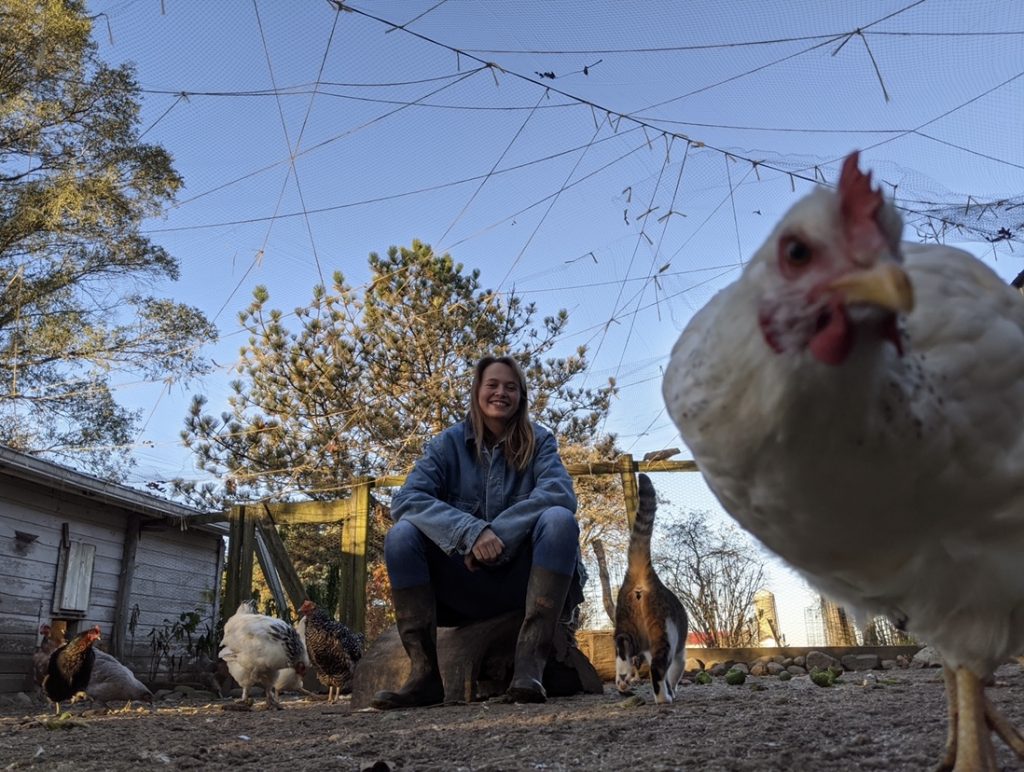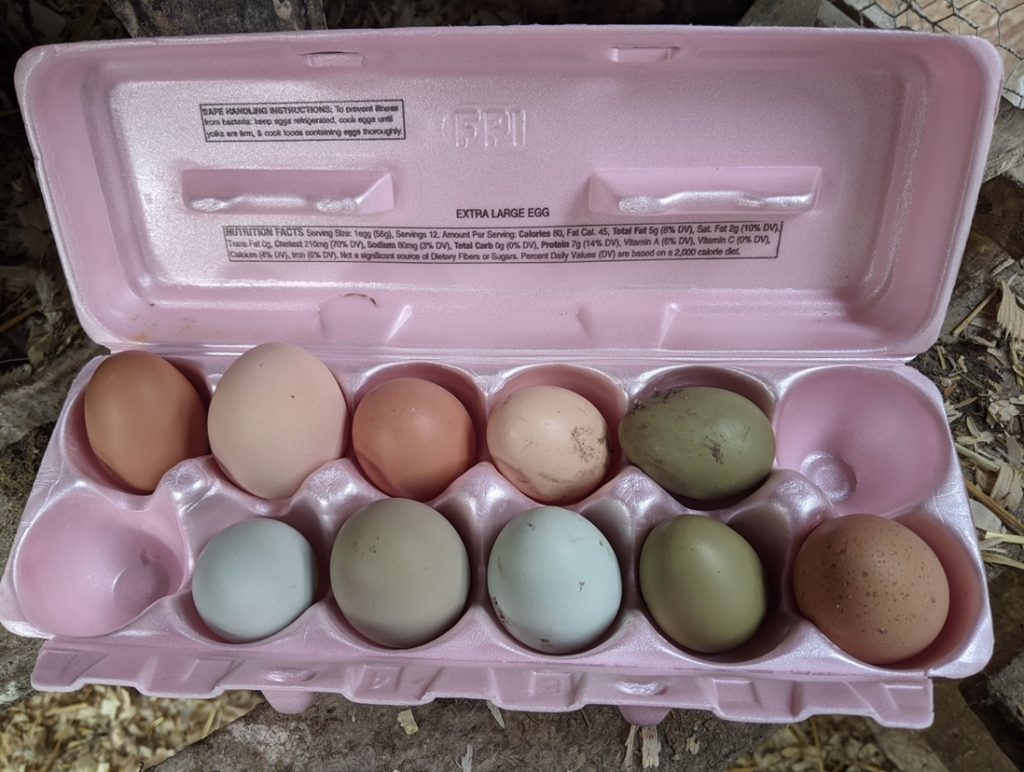This week, we meet with Nikelle, an Environmental Engineering student at the University of Wisconsin-Platteville. She takes on this week’s interview by revealing that sustainability is a balance between more than just humans and our natural environment.
What does sustainability mean to you?
“Well, firstly, I think it’s interesting how it’s interpreted so differently from person to person after reading your blog, but for me, in all my classes, sustainability is this huge thing that you have to go through for all the environmental engineering design. So basically we always have to do this thing called a ‘sustainability triangle’. It basically is that you want your triangle to look like this [makes an equilateral triangle with her hands]. Each piece is either people, planet, and profit. You want that to be as equal as possible. It considers not only the environment, but the cost of the project, and the social impacts. So I think mostly, sustainability has to do with that: trying to keep everything in equilibrium as far as people, planet, and price. But also, it’s probably just trying to have the least impact and trying to preserve resources for future generations.”
In an upcoming blog, I will uncover the definitions of sustainability, as dictionaries and governments define it. I will also touch on the metaphor of the three-legged stool in relation to sustainability. Stay tuned!
Why does it matter?
“It matters because without sustainability, you just can’t keep designing stuff and doing things at the rate we are because at some point – if the whole world lived like Americans, we’d run out of resources. There’s just not enough earth to support that kind of living, so sustainability is important just for the fact that that it keeps those three things in check: planet, profit, and people. If that’s out of wack then you’re either going to run out of natural resources or you’re going to disproportionately affect people or you’re going to run out of money.”
Does sustainability imply an ethical responsibility?
“Yeah, I think so. Well I think sometimes when you make sustainable choices through your own personal choices, like using less plastic, that’s easier than working for a company. Engineering again, design wise – I think it’s harder to follow your own ethics sometimes. When you have to be the face of a company, obviously you can’t. If I were designing something, I would probably be wanting it to be all environmental, but at the same time, that’s going to cost a lot of money. I can’t do that a lot of times because when you’re working under someone or when you have the stake of the company in your hands as well, you have to consider people. I think for your personal ethics, yeah, I think sustainability is something that you should consider, but in a bigger scale it’s important to notice that that’s not always going to happen.”
Are there any practices that you implement in your everyday life to make it more sustainable?
“Yes. I try not to eat a lot of meat. If I do, I try to make sure it’s either fish or eggs. And the chickens – I always have their eggs. I almost always buy used clothes, and if I buy something new then it’s something I really want and will have for a long time. I think that’s pretty good because people just spend a lot of money on clothes and then it just ends up in the trash. I will always buy almost everything used. I think it’s diet and just general consumption. Obviously I think it’s not to use a lot of plastic. A reusable water bottle – it’s kind of like a given. It’s just having that mindset where you love going outside and where you have a really connected sense to nature. I definitely feel like I have that. I spend a lot of time outside. I have a lot of plants, flowers, gardening, and my chickens. I think all that creates a better connection to the environment and then creates a more sustainable life. As far as the people/profit side of that, I don’t know if I do anything good for social impact. Eating your own food that you raise and wearing used clothes is better for it.”
While many farms have ethical practices, large industrial food corporations tend to treat animals in an inhumane way, as exposed 2008 documentary, Food, Inc.. A large portion of the products we find at the grocery store, we have little to no idea of what went into making those products, so there is a benefit of knowing where your animal products come from, for instance.
Was there a certain moment, event, or light-switch that marked the moment you wanted to or felt the need to make these changes?
“I don’t know. I feel like I grew up always liking the outdoors. I feel like there’s been a cultural shift the last few year where everyone’s kind of in sustainability gang now. I think that kind of helped too. I feel like I’ve always been aware just because I’ve always grown up with the outdoors as a huge part of my life. My parents tried their best to teach me how to live a more sustainable way. I don’t think there was a pinnacle moment. I always felt like that was the right thing to do. I feel like Haverly’s class [an Environmental Biology course] opened my eyes a little bit just because he was always calling people out on the bad stuff they might be doing. I was like, ‘wow maybe I could be doing little bit better.'”
Do you personally know of many people who have similar practices or a similar lifestyle as you?
“I feel like a lot of the people I go to school with are, especially Environmental Engineering majors. I think they’re all pretty hippie dippie. They’re outdoorsy. A lot of people are vegetarians in my friend group.”
What current barriers do you think there are for individuals or society for not switching to more sustainable methods of living?
“I think cost is a major issue. I’m sure there’s a lot of people who would like to live a little bit better, but it’s their financial situation. Or maybe, from an educational stand point where they just may not know. Or maybe it’s just support from their parents if they’re young. That was kind of a big thing for me too: I didn’t want to eat a lot of meat anymore, but then my parents still ate meat. It was just kind of hard in that way. It’s not having the money and not having community support or education. Those are major things. If you don’t have that support from your parents, and you’re still living under their roof, there’s really no way to change anything. Say you want to recycle at your house – that pretty much has to go through your parents before you can get anything done. If you’re an adult and you make the decisions by yourself, then that won’t be much of an issue anymore. I just feel like the support aspect is more important.”
At a local or national level, what do you think we can do to make the most change?
“Definitely vote. Vote for the local, the presidential, all the elections. If you want to see major policy change, that’s the only way you’re going to see it. I think there’s a lot of responsibility in just – especially with the clothing industry – if you keep supporting that company or that corporation, obviously they’re just going to keep growing. And actually more and more people are saying, ‘we want more sustainable clothing or food.’ If more corporations and the capitalists of that industry are going to change, like we’re already seeing now. There’s a lot of meat free protein alternatives. You’re seeing a lot of clothing companies being more sustainable, like Patagonia. If you see something that you want to change, then speak up and only support those things the you really believe in.”


October 30, 2020 at 10:59 pm
Wow I loved reading this article. I relate a lot to her about not being able to eat less meat because of family and buying used clothes. I like new clothes, but they tend to fall apart even faster than the thrifted or used clothes. Also the chickens were really cute! There is nothing better than getting eggs from someone you know. Awesome post, I really like what the message of your blog is, keep it up Shae!
November 4, 2020 at 2:27 am
It was interesting to hear about the sustainability triangle as explained by someone who studies it so closely on a day-to-day basis. This is an important reminder that sustenance comes from moderation; if certain things are off-balance it could cause an unrepairable rift. As for what actions we can take to do our part, I buy a lot of used clothes because I am cheap, but it is good to know that I am actually helping in making a more sustainable future! I do eat a lot of meat though, and this is a habit that would be very difficult for me to break (although I could get behind being more mindful with my dietary choices). Thanks for the insight!